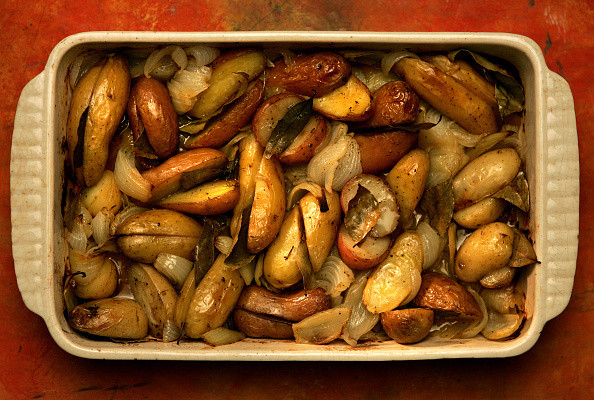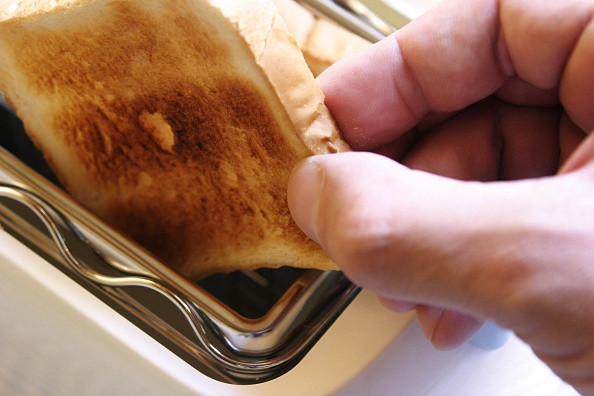FSA's cancer warning over burned toast and roast potatoes criticised by experts
Food Standards Agency has advised people should reduce consumption of browned toast and crispy potatoes.

A new campaign by the Foods' Standard Agency (FSA) – which warns people not to eat crispy roast potatoes or browned toast because it might increase their risk of cancer – has been heavily criticised by health experts. The agency has been accused of massively overreacting and not focusing on more pressing public health issues.
The 'Go for Gold' campaign wants to change the way people cook starchy food, to reduce the levels of a chemical known as acrylamide, which has previously been associated with a risk of cancer in animal studies. Acrylamide can be created when many foods, such as potatoes and bread, are cooked for long periods at high temperatures (frying or roasting).
The slogan 'Go for Gold' was chosen because the FSA urges people to aim for a golden yellow colour or lighter when frying, baking, toasting or roasting starchy foods.
The agency also recommends checking the pack to follow the correct cooking instructions for all starchy foods and to avoid leaving raw potatoes in the fridge as this can increase overall acrylamide levels.
While the FSA says that there is scientific consensus over the fact that acrylamides are associated with a potential risk of cancers, the fact is very few studies have been conducted in humans.
Poorly documented risk
In its latest assessment of the risk, the International Agency for Research on Cancer classified acrylamides as "probably carcìnogenic to humans" after reviewing data from animal studies and small experiments in humans. This means that there was sufficient evidence in animal models – in studies where laboratory animals had been given acrylamide in drinking water – but inadequate evidence in humans for the carcinogenicity of acrylamide.

It also remains to be seen whether a diet high in cooked, browned foods such as well-done roast potatoes could expose people to enough acrylamides for them to risk developing a cancer.
Interviewed by The Telegraph, Sir David Spiegelhalter, Professor of the Public Understanding of Risk at Cambridge University commented: "I'm always ambivalent about public health campaigns that are not based on some pretty firm quantitative evidence. Many things in life may increase risk, but it's the size of the risk that makes it important."
Health experts have also said the campaign may take the focus away from other important public health issues. Instead of launching a campaign backed up by limited scientific evidence, many argue that the government should work to better educate the public about the risks of more pressing problems, such as obesity or smoking.
Although one of the FSA's advice is that people should eat a varied and balanced diet, this message risks being lost among all the other recommendations promoted by the 'Go for Gold' campaign.
It is likely that people won't do anything to change their eating behaviours and worse, scientists are concerned it could do more harm than good.
Sir John Oldham, Adjunct Professor of Global Health Innovation at Imperial College London told IBTimes UK:
"It is naive at best, and just plain silly at worst, to believe that people are going to adopt soggy roast potatoes and partially toasted bread. It is an example of 'research group think' - research that is so narrowly focused it doesn't see that the message will not resonate with the mass of people (...) Creating headlines around such flakey evidence to advise people to adopt what many will see as unacceptable means that people end up tuning out to the important messages."
© Copyright IBTimes 2025. All rights reserved.






















